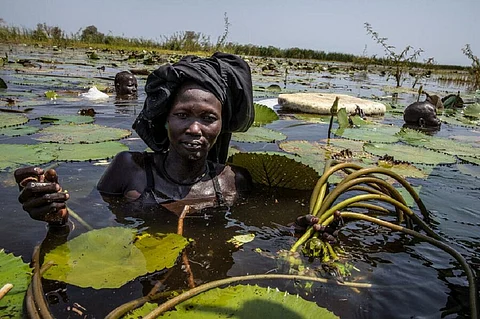

A recent report has flagged environmental risks associated with severe flooding near South Sudan’s national oil infrastructure. Oil infrastructure in the country lacks adequate protection and often proper maintenance. Unprecedented and prolonged floods have been inundating large swathes of the country, displacing hundreds of thousands of people.
Poorly managed oil installations coupled with extreme weather events have been worsening the country’s environmental health, noted the report titled Toxic Floods? Climate, Natural Hazards and Risks to South Sudan’s Oil Infrastructure.
During floods, crude oil, wastewater and chemicals pose acute and long-term risks to the local environment, depending on the amount, exposure type and impacted area, said the document released by non-profit PAX on May 23, 2023. Direct exposure to these chemicals can pose acute health risks to people. Crude oil and wastewater can affect drinking water sources of communities, livestock and soil if not cleaned up and remediated properly.
Researchers used satellite images and a hydrological model to identify how the increasing seasonal floods near oil fields can pose additional environmental health risks to lives and their livelihoods. They outlined the potential flood plains in the two leading oil blocks in Unity State and Upper Nile; both have unique ecosystems, such as the Sudd wetland, one of the world’s largest wetlands. Additionally, most oil blocks in South Sudan are located near rivers and floodplains.
The researchers mapped all the oil extraction points and the areas that were flooded between 2021 and 2022. Of the 486 oil extraction points in Unity State, flood water overflowed 233 wells. Though most of the oil extraction points did not seem to be active during the analysis, there remain risks of oil pollution from oil waste pits, unsafe storage of hazardous chemicals and risks of damage to oil pipelines.
Oil production in the country has plunged to 140,000 barrels per day (bpd) from 160,000 bpd in 2022 due to heavy flooding in the northern oil fields, South Sudan’s Minister of Petroleum Puot Kang Chol said in a forum.
The findings of the report underscore the need for the government and international oil companies to address these challenges. This analysis can be used to develop an early warning system for the oil blocks and to design protective measures for the oil installations at risk.